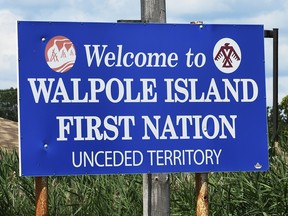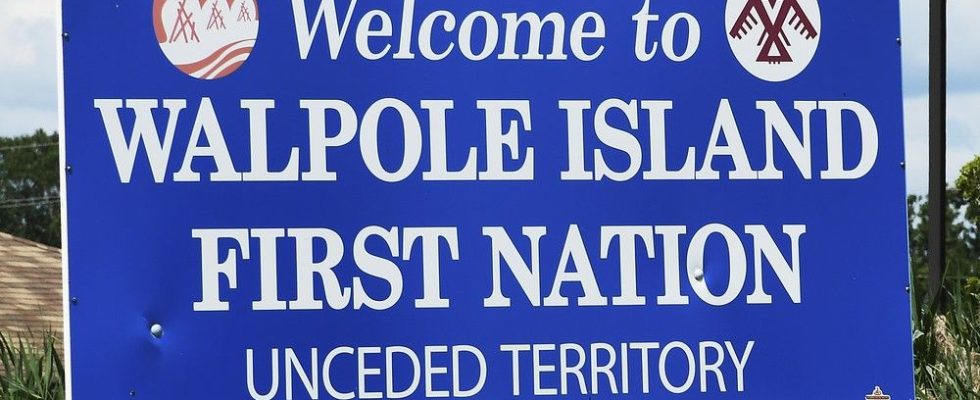
The end may be in sight to a Southwestern Ontario First Nation’s land claim against the federal government that dates back nearly 200 years.
The Walpole Island First Nation, located along Lake St. Clair between Chatham-Kent and Sarnia, isn’t commenting on the proposed $46-million settlement, saying it’s still early in the process.
Details of the negotiations are confidential, but progress is being made and the federal government and the First Nation are continuing to work toward a resolution of the claim, Matthew Gutsch, a spokesperson for Indigenous Services Canada, said in an email exchange.
According to a timeline of the claim posted on the First Nation’s Facebook page, 400 acres were set aside in 1841-42 in what’s now Enniskillen Township for the Chippewas of the St. Clair River and the Chenail Ecarte Tribe.
The Chenail Ecarte Tribe later became the Walpole Island First Nation, and Chippewas of the St. Clair River later became the Aamjiwnaang First Nation in Sarnia and the Kettle and Stony Point First Nation.
According to the claim timeline, between 1866 and 1918, the Crown sold the reserve land without obtaining a surrender or consent from the Walpole Island First Nation. In 1983, the Enniskillen Claim was accepted for negotiation on the basis that Canada had failed to act in the best interest of the three First Nations when it sold the claimed area without consent.
In 1998, despite a protocol that unanimous consent of all three First Nations was required, the Walpole timeline says Canada settled with the Chippewas of Kettle and Stony Point and the Chippewas of Sarnia. The settlement was for $2 million for each First Nation and the right for each to acquire 200 acres of land to be added to their reserves.
Walpole did not ratify Canada’s settlement offer, the timeline states. Negotiations resumed in 2018, with Walpole hiring a land appraiser, economist and legal team to research the best possible settlement, according to the First Nation.
In February, Canada offered to settle for just more than $46 million, with the provision any loan provided to Walpole over the negotiations be deducted. The proposed settlement also allows the First Nation to buy up to 400 acres of land which can be added to reserve status.
The negotiations were restarted five years ago because both Canada and the First Nation “wanted to avoid litigation and agreed to re-examine the claim” based on updates of studies done when the claim began, Indigenous Services Canada and Crown-Indigenous Relations and Northern Affairs wrote in an email.
Asked about the proposed settlement, including Walpole being able to buy land to add to its reserve, Indigenous Services Canada said many specific claim settlements include a provision for additions to reserve land.
On its Facebook page, Walpole says its band council will hold information sessions to explain the proposed settlement, which must be ratified by the First Nation’s membership.
How the settlement funds would be used is up to the First Nation, according to the Facebook post.
“Canada will not say how the money can be used, although they require (the First Nation) to receive advice from a financial advisor.”

Comments
Postmedia is committed to maintaining a lively but civil forum for discussion and encourages all readers to share their views on our articles. Comments may take up to an hour for moderation before appearing on the site. We ask you to keep your comments relevant and respectful. We have enabled email notifications—you will now receive an email if you receive a reply to your comment, there is an update to a comment thread you follow or if a user you follow comments. Visit our Community Guidelines for more information and details on how to adjust your email settings.
Join the Conversation